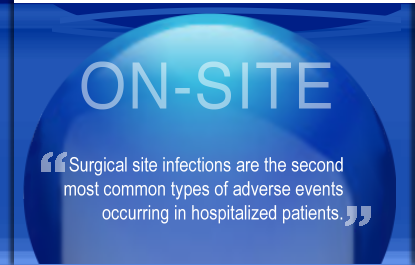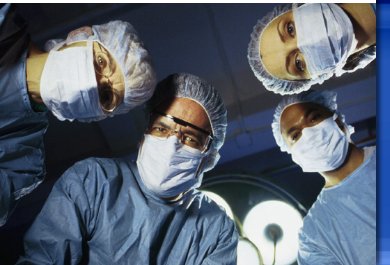| 1. |
Ask that hospital staff clean their hands before treating you, and ask visitors to clean their hands too. This is the single most important way to protect yourself in the hospital. If you're worried about being too aggressive, just remember your life could be at stake. All caregivers should clean their hands before treating you. Don't be falsely assured by gloves. If caregivers have pulled on gloves without cleaning their hands first, the gloves are already contaminated before they touch you. |
| |
|
| 2. |
Before your doctor uses a stethoscope, ask that the diaphragm (the flat surface) be wiped with alcohol. |
| |
|
| 3. |
If you need a "central line" catheter, ask your doctor about the benefits of one that is antibiotic-impregnated or silver-chlorhexidine coated to reduce infections. |
| |
|
| 4. |
If you need surgery, choose a surgeon with a low infection rate. Surgeons know their rate of infection for various procedures. Don't be afraid to ask for it. |
| |
|
| 5. |
Beginning three to five days before surgery, shower or bathe daily with chlorhexidine soap. Various brands can be bought without a prescription. It will help remove any dangerous bacteria you may be carrying on your own skin. |
| |
|
| 6. |
Ask your surgeon to have you tested for methicillin-resistant Staphylococcus aureus (MRSA) at least one week before you come into the hospital. The test is simple, usually just a nasal swab. If you have it, extra precautions can be taken to protect you from infection. |
| |
|
| 7. |
Stop smoking well in advance of your surgery. Patients who smoke are three times as likely to develop a surgical site infection as nonsmokers, and have significantly slower recoveries and longer hospital stays. |
| |
|
| 8. |
On the day of your operation, remind your doctor that you may need an antibiotic one hour before the first incision. |
| |
|
| 9. |
Ask your doctor about keeping you warm during surgery. Operating rooms are often kept cold, but for many types of surgery, patients who are kept warm resist infection better. |
| |
|
| 10. |
Do not shave the surgical site. Razors can create small nicks in the skin, through which bacteria can enter. If hair must be removed before surgery, ask that clippers be used instead of a razor. |
| |
|
| 11. |
Avoid touching your hands to your mouth, and do not set food or utensils on furniture or bed sheets. Germs such as "C. Diff" can live for many days on surfaces and can cause infections if they get into your mouth. |
| |
|
| 12. |
Ask your doctor about monitoring your glucose (sugar) levels continuously during and after surgery, especially if you are having cardiac surgery. |
| |
|
| 13. |
Avoid a urinary tract catheter if possible. It is a common cause of infection. The tube allows urine to flow from your bladder out of your body. Sometimes catheters are used when busy hospital staff don't have time to walk patients to the bathroom. If you have a catheter, ask your caregiver to remove it as soon as possible. |
| |
|
| 14. |
If you must have an IV, make sure that it's inserted and removed under clean conditions and changed every 3 to 4 days. |
| |
|
| 15. |
If you are planning to have your baby by Cesarean section, follow the steps listed above as if you were having any other type of surgery. |
| |
|




